Website sections:
Current section's content:
- Overview of IT Project Management
- Leadership, Management and Development: Theory
- Leadership, Management and Development: Personal Experience
- Who Should Manage IT Projects, Subject Matter Experts or IT Professionals?
- Optimization Management: Quality, Cost and Schedule
- IT Project Problem Areas
- Running IT Projects Like Small Businesses
- Working with Offshore Partners: Opportunities, Challenges, Cultural Issues
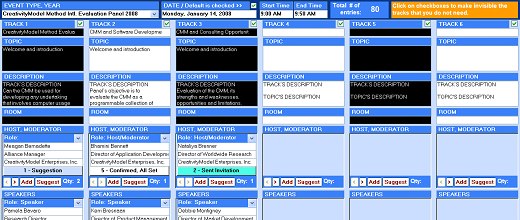
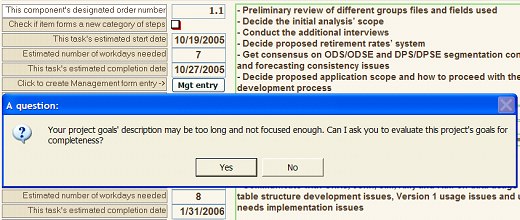
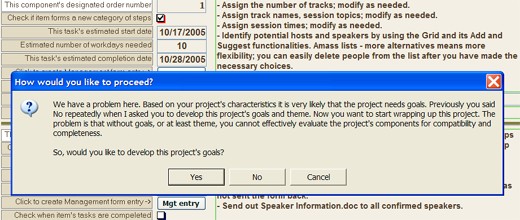
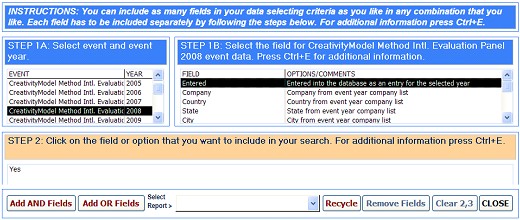
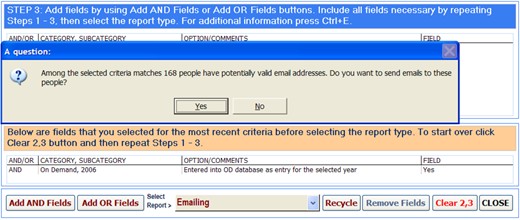
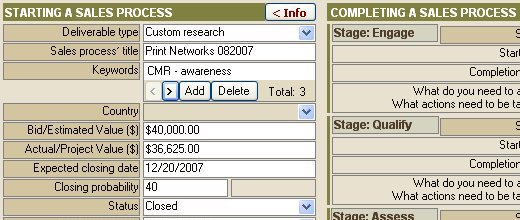
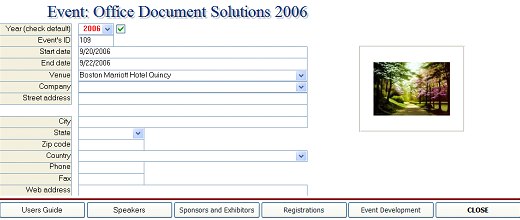
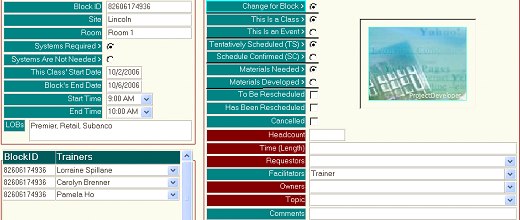
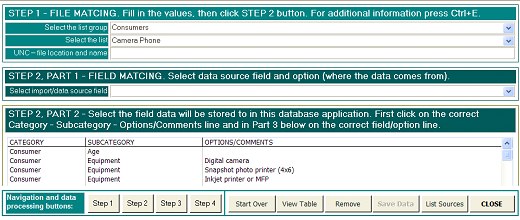
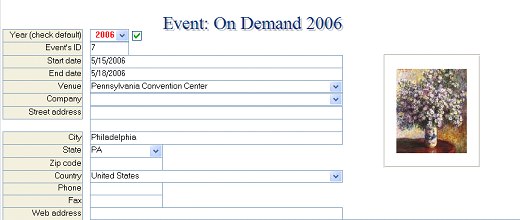
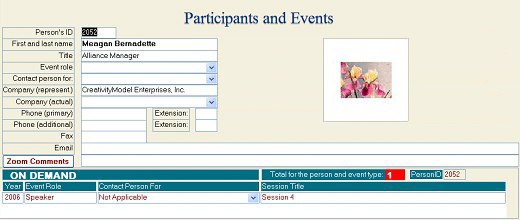
Leadership, Management and Development: Personal Experience
In the previous article project development is defined as the role that handles tasks that focus on moving the project along toward a successful completion. This differs from leadership and management.
Based on my personal experience I can say that leadership, management and development roles and task areas can be distributed between different project participants in different ways. However, it is important to project's success that all three roles and task areas are addressed during the project development processes.
This Works
I am a very capable IT project manager but given that project leadership and management tasks are being handled skillfully by somebody else, I may be able to contribute the most in IT project developer's role.
As a contractor, I am usually an outsider for the company that brings me in temporarily.
Often enough, somebody from inside the company is the project manager and, as such, responsible for controlling and directing resource usage.
For example, when I work for a banking industry customer, the project manager may be that subject matter's expert that the application is being developed for.
Often enough that project manager is not a database application development expert, or an expert at the technologies that are being used.
Working as a contractor for a customer the way described here usually results by necessity in a division of project leadership, management and development task areas between project participants, and also in a close collaboration between the people who handle these task areas.
I have worked both as a contractor and as an employee, handling these three task areas in all sorts of combinations, dealing with different subject matters, some of which were very familiar to me, and others that were new to me and I had to learn about.
This can work out very well. My experience tells me, that leadership, management and development task areas can be distributed between different people in different combinations. It is important, however, that all three task areas are being addressed.
Efforts In All Three Task Areas Are Necessary
Different project participants can handle leadership, management and development task areas. When all of these task areas are all handled as needed, project is being moved forward and results are being achieved.
If any one of the three areas is not being handled, problems usually arise.
- When project leadership tasks are not being handled, project participants may not be sufficiently informed about where the project is heading. As a result, the participants feel confused and are less motivated to contribute their personal best efforts.
- When project management tasks are not being handled properly, project participants productivity is likely to suffer and it is also likely that project-related necessary resources are not being used effectively.
- When project development tasks are not being handled properly, project either stalls or project participants may work on tasks that do not contribute enough to achieving the necessary end results.
Division of Labor May Be a Necessity
People in managerial positions may have neither time nor inclination for handling every project's every aspect. Project developer should make sure consistently and diligently, effectively and efficiently, that the project moves forward towards a satisfactory outcome.
So, project development efforts are needed. Projects require both leadership and management as well, and project developer may not be the right person to handle all of the relevant situations, especially if the developer does not have the authority that is necessary for doing so.
Project development process is likely to require a great deal of collaboration between project developer and the customer representatives throughout the project. That may put an additional burden on the customer representatives who are already busy, handling their regular workloads. Motivating people in such situations requires leadership and directing them requires management efforts.
Similarly, project development process may require extra efforts from the development team members, particularly when deadlines need to be kept or other types of goals need to be achieved. Again, motivating the development team members in such situations requires leadership and directing them requires management efforts. Moving the project forward in the needed direction, however, requires project development efforts. These task areas can be divided between different project participants, but they must all the addressed.
What I Do As IT Project Developer
As IT project developer, I am usually responsible for identifying customer's needs and wants and for translating these needs and wants into written description of the computer application that needs to be built, identifying how the project's objectives will be reached, identifying and securing the resources that are needed for completion of the project, and acting as a liaison between the customer and the people who perform the application development tasks, so that the project's objectives are achieved efficiently and effectively, using methods that are applicable to the project's type.
Additionally, in most instances I also handle application's usability engineering, application architecture development, at least some quality control aspects and user training as well.
In a nutshell, as IT project developer I am usually responsible for making sure that the application's future users needs and wants are implemented in the most feasible way, on time and within the agreed-on budget. Depending on the technologies used and other project specific details and agreements, I may handle most of the application development tasks as well, or only some of the relevant tasks, and work with developers who handle the relevant tasks.
So, I would say that project developer must
- Break down the whole project into identifiable application parts that both the customer and the people who perform the application development tasks can understand and agree on.
- Based on the above break down the whole project into identifiable objectives and tasks that the people who perform the application development tasks can understand and agree on.
- Ensure, that the resources (including amounts of time and skills) needed for completion of each of the needed tasks are identified.
- Put together and verify with the involved parties project development timetable.
- Ensure that people who participate in the project development have been informed about their responsibilities.
- Throughout the project verify, that the agreed on functionality pieces and features function as needed.
- Ensure, that the agreed on product is delivered to the users on time and within the agreed on budget.
Project developer can also fulfill the project manager's role, or, in case of larger projects, project manager can oversee several project developers.
Thus, project developer handles tasks that are often associated with business analyst's role, and also tasks that are related to project planning, development and management, and helps to move the project along step-by-step from onset to successful completion.

